AACHM Oral History: Leah Bass-Baylis
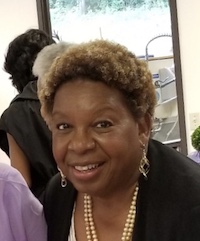 Leah Bass-Baylis was born in 1954 in Ypsilanti. Her parents Thomas and Louise Bass–a doctor and teacher–were influential members of Ypsilanti’s Black community. She studied dance at Ypsilanti’s Randazzo Dance Theater and graduated from Spelman College in Atlanta in 1976. She also holds a doctorate in Educational Leadership and Organizational Change from the University of Southern California. Bass-Baylis was a dancer and choreographer for many Broadway shows, including performing in The Tap Dance Kid. In her later career as an administrator, she developed arts education programs in Los Angeles. She and her husband Doug Baylis have four children.
Leah Bass-Baylis was born in 1954 in Ypsilanti. Her parents Thomas and Louise Bass–a doctor and teacher–were influential members of Ypsilanti’s Black community. She studied dance at Ypsilanti’s Randazzo Dance Theater and graduated from Spelman College in Atlanta in 1976. She also holds a doctorate in Educational Leadership and Organizational Change from the University of Southern California. Bass-Baylis was a dancer and choreographer for many Broadway shows, including performing in The Tap Dance Kid. In her later career as an administrator, she developed arts education programs in Los Angeles. She and her husband Doug Baylis have four children.
AACHM Oral History: Bill Henderson
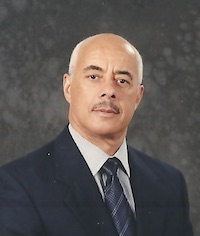 William A. Henderson was born in 1943 in Ann Arbor to William and Viola Henderson. After graduating from Ann Arbor High School and Eastern Michigan University, Henderson enlisted in the Marine Corps and went through naval aviator training. He flew in 125 combat missions during the Vietnam War and was a forward air controller with the infantry. He advanced through the ranks and in 1996 became the first Black pilot to achieve the status of Major General in the Michigan Air National Guard. He was also Chief Pilot at General Motors. He and his wife Francine have two children, Justin and Nicole.
William A. Henderson was born in 1943 in Ann Arbor to William and Viola Henderson. After graduating from Ann Arbor High School and Eastern Michigan University, Henderson enlisted in the Marine Corps and went through naval aviator training. He flew in 125 combat missions during the Vietnam War and was a forward air controller with the infantry. He advanced through the ranks and in 1996 became the first Black pilot to achieve the status of Major General in the Michigan Air National Guard. He was also Chief Pilot at General Motors. He and his wife Francine have two children, Justin and Nicole.
AACHM Oral History: George Goodman
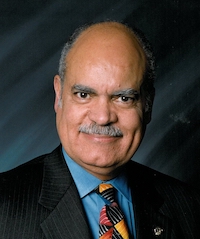 George D. Goodman was born in 1940 and grew up in Ypsilanti. His father George worked at the Ford River Rouge plant and his mother Thelma owned and operated Goodman’s Fashion Center on Harriet Street. After graduating from Roosevelt School and Eastern Michigan University, he served as a U.S. Army officer in Germany for 5 years. Goodman is best known for being the mayor of Ypsilanti from 1972 to 1982. He was also director of the University of Michigan Opportunity Program and the Michigan Municipal League. He and his wife Judith have been married for sixty years, and they have two sons.
George D. Goodman was born in 1940 and grew up in Ypsilanti. His father George worked at the Ford River Rouge plant and his mother Thelma owned and operated Goodman’s Fashion Center on Harriet Street. After graduating from Roosevelt School and Eastern Michigan University, he served as a U.S. Army officer in Germany for 5 years. Goodman is best known for being the mayor of Ypsilanti from 1972 to 1982. He was also director of the University of Michigan Opportunity Program and the Michigan Municipal League. He and his wife Judith have been married for sixty years, and they have two sons.
The Gayest Generation Ep. 8 - Stephanie Byers
Welcome to The Gayest Generation, where we hear LGBTQ older adults speak for themselves. Every episode, we sit down with a different member of the LGBTQ community who laid the foundation for the freedoms we have today. Their stories make noise where there is silence and that silence has lived for far too long. It is time we let their voices fill the room.
In this episode, we speak with Kansas State Congresswoman Stephanie Byers. We learn about what it’s like to be one of first openly transgender people elected to a State Legislature, growing up as a member of the Chickasaw Nation, and what it means to live life authentically.
AADL is excited to announce that you can listen to this episode, or any episode of The Gayest Generation, on Apple Podcasts, Spotify, or YouTube!
Martin Bandyke Under Covers for March 2021: Martin interviews Reuben Jonathan Miller, author of Halfway Home: Race, Punishment, and the Afterlife of Mass Incarceration.
Each year, more than half a million Americans are released from prison and join a population of twenty million people who live with a felony record.
Reuben Miller, a chaplain at the Cook County Jail in Chicago and now a sociologist studying mass incarceration, spent years alongside prisoners, ex-prisoners, their friends, and their families to understand the lifelong burden that even a single arrest can entail. What his work revealed is a simple, if overlooked truth: life after incarceration is its own form of prison. The idea that one can serve their debt and return to life as a full-fledge member of society is one of America’s most nefarious myths. Recently released individuals are faced with jobs that are off-limits, apartments that cannot be occupied and votes that cannot be cast.
Halfway Home shows that the American justice system was not created to rehabilitate, and that parole is structured to keep classes of Americans impoverished, unstable, and disenfranchised long after they’ve paid their debt to society.
AACHM Oral History: William Hampton
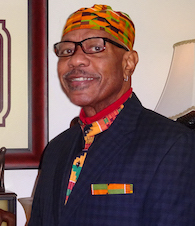
William Hampton was born in 1948 in Tyler, Texas, and his grandmother was the midwife. He remembers attending church revival picnics, the Texas Rose Festival, and the Juneteenth parade in his hometown. While attending college in Arlington, Texas, he was active in the Alpha Phi Alpha fraternity. He went on to launch a Section 8 subsidized housing program in Arlington and in Ann Arbor, where he worked in the community development office. Mr. Hampton has been president of the Ann Arbor chapter of the NAACP since 2005.
AACHM Oral History: David Rutledge
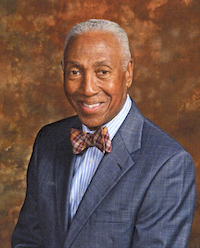
David Rutledge was born in 1945 in LaFayette, Alabama and grew up in Chattanooga, Tennessee. He traces his commitment to public service to his experience protesting a segregated lunch counter as a teenager. He attended Tennessee State University and the University of Michigan Law School. Mr. Rutledge has served as Superior Township Supervisor, Ypsilanti State Representative, and as a member of the Washtenaw County Parks Commission and Washtenaw Community College Board of Trustees. He dedicates this interview to his parents and his late wife, Gerri.
AACHM Oral History: Don Simons
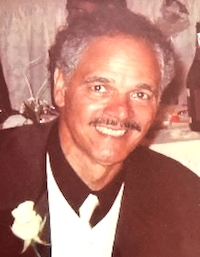
Donald L. Simons was born in 1943 and he grew up on Fuller Street in Ann Arbor. He attended Jones School, Ann Arbor High, and Eastern Michigan University. He was a starting football halfback and basketball co-captain in high school, and was recognized as athlete of the month. Mr. Simons recalls segregation and several incidents of discrimination in Ann Arbor. He is proud of his family, his work coaching at the Maxey Boys' Training School and Boysville, and co-hosting the annual neighborhood picnic for 25 years.
AACHM Oral History: Thekla Mitchell
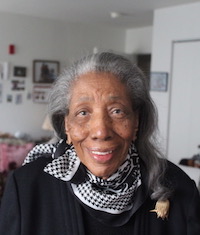
Thekla Mitchell: Thekla White was born in 1921 in Newport, Arkansas, the youngest of nine siblings. At age 22, she traveled to Ann Arbor to visit her sister. After getting a job at Cunningham’s Drug Store, she decided to stay. She worked at the University of Michigan Hospital as a nurses’ aid and laboratory assistant in the Pathology Department for 24 years. Known as “Dimples” to friends and family, Mrs. Mitchell was active in community organizations including the Ann Arbor Civic Club and the Order of the Eastern Stars.
AACHM Oral History: Harold Simons
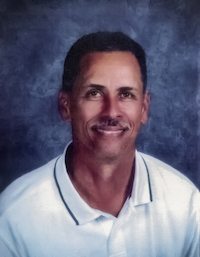
Harold Simons was born in 1946 and he grew up in Ann Arbor. He was inspired by Jones School teacher Harry Mial to become a teacher and coach. A standout basketball player for Ann Arbor High, he went on to play at Eastern Michigan University. He was the freshman basketball coach there before becoming head coach at Huron High for 20 years. Mr. Simons reflects on race relations and generational differences in Ann Arbor. He and his wife Ethel have been married for 53 years.